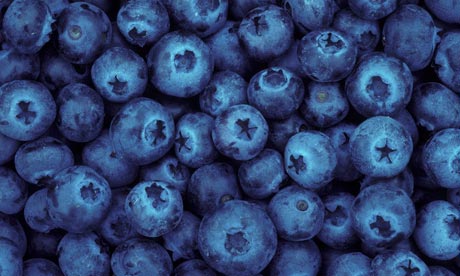
When the press release arrived in our inboxes, we knew what would happen next. A controversial Nobel laureate had stated, in a peer-reviewed paper he described as "among my most important work", that antioxidant supplements "may have caused more cancers than they have prevented".
Even the most fad-friendly sections of the UK media were bound to cover the story.
In reality, Professor James Watson – one of the DNA double-helix's founding fathers – was only restating what we at Cancer Research UK (along with many others) have been pointing out for years. Large studies have repeatedly shown that, with the possible exception of vitamin D, antioxidant supplements have negligible positive effect on healthy people, at least in terms of important things such as preventing people getting cancer or dying prematurely. And some supplements – notably vitamins A, E and beta-carotene – even seem to slightly raise the risk of disease and early death.
It's a topic we at Cancer Research UK come back to again and again on our science blog and on our social media pages. But as a quick trawl of Twitter reveals, huge swaths of the public remain convinced that "antioxidant" is a byword for "healthy".
This isn't going to be a Goldacresque run-down of study after study of evidence (although here's a handy Cochrane review for the nerds). What's so interesting about the antioxidant myth is its wider cultural and social dimension. Why is this perception so hard to shift? And is there anything we can do about it?
One possible reason for our entrenched attitudes is the ubiquitous use of the word "antioxidants" in adverts proclaiming the health benefits of various foods and drinks. This isn't for want of regulation, and the Advertising Standards Authority have repeatedly upheld complaints about adverts that make unsupported claims about antioxidants' benefits.
But the much weaker claim that a product merely "contains high levels of antioxidants" leaves health claims implicit, and keeps regulators at bay. A brand of "super-broccoli" – launched with much fanfare in late 2011 – was bred to contain high levels of a chemical that ultimately, according to the product's website, "boosts our body's Antioxidant Enzyme levels". So good it's Capitalised.
So the relentless drip drip of health product advertising – particularly against a background of continual reports of Britain's ill-health, and our supposedly irresponsible behaviour – makes our trenchant hold on the antioxidants myth all the more understandable. We need this stuff, we're told.
But there's probably a deeper reason for our collective refusal to swallow the bitter pill of scientific evidence. The actual, proven things that can reduce our risks of cancer, heart disease, diabetes – and all the other chronic nasties that come with an ageing population – are somewhat more prosaic. Don't smoke. Stay in shape. Eat a balanced diet. Limit alcohol intake. Keep active. This is hard work.
And as the resolution-filled new year kicks in, the exciting prospect of a healthier life is replaced by the realisation that being healthy is a long-term project. Popping a pill instead of going to the gym is a tempting prospect for many of us. Confirmation bias is a powerful thing.
But the UK population is ageing, and likely to place a greater burden on the NHS in future. We owe it to ourselves, and those will be paying for our care, to make sure we're as healthy as possible for as long as possible. Putting our faith in a word, and a pill – however comforting it may sound – to do this for us is a mirage and a fallacy. Antioxidants do not prolong our lives nor prevent cancer, despite what we want to believe. As Professor Watson remarked in his paper, "Blueberries best be eaten because they taste good, not because their consumption will lead to less cancer."

